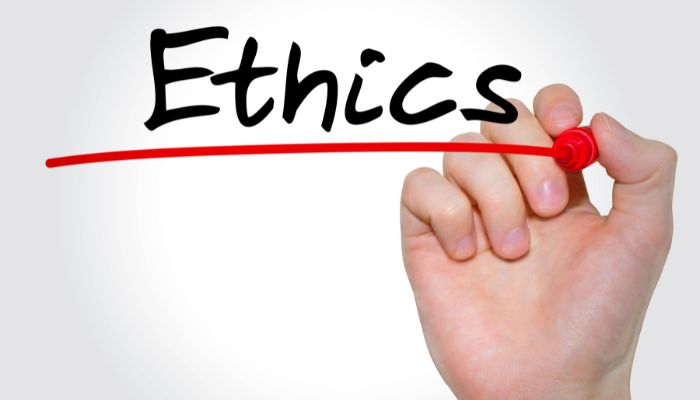In 2017, United Airlines found itself in the heart of a scandal when its security officer was filmed dragging a passenger forcefully off an overbooked flight. News of the incident spread like wildfire, resulting in massive outrage from the passengers and the general public. Loyal customers questioned the airline’s business ethics, causing the company’s share prices to plummet $1 billion in market value. Many boycotted the airline, and the company lost consumer loyalty.
While overbooking flights and requesting passengers to de-board is perfectly legal for airlines, it is not ethically permissible for the security team to remove a passenger with brute force. This business scandal highlighted an essential element of organisational ethics–customer prioritisation.
You might also be interested to read: Building A Strong Company Culture With These 4 Categories Of Work
What are organisational ethics?
Organisational ethics are a code of ethical principles and moral standards a company upholds. It represents the code of conduct of a company’s morale, culture, and work environment. These standards vary between businesses and often dictate how employees are expected to behave when dealing with internal and external issues. The benefits of organisational ethics come in many forms, such as:
- It attracts more partners and consumers
- It fosters employee satisfaction
- It improves public relations
Organisational ethics and HR
An HR team is considered the ambassador and flag bearer of an organisation’s ethical culture. As they are often the first to witness potential issues, leadership teams bank on them to mitigate the threat caused by such problems. They play an imperative role in shaping a company’s ethical culture, ensuring that the implemented protocols and conducts align with its mission and values.
While considering the organisational ethics of any company, the HR should keep these four key elements in mind:
- Integrity
- Respect
- Reliability
- Customer prioritisation
How can HR professionals promote business ethics in the workplace?
- Access and update the current code of conduct to uphold the company’s values.
- Enable an inclusive culture that creates equal opportunities for all.
- Conduct introductory ethics training and programmes for all employees.
- Empower employees by providing earned time-offs, incentives, and regular breaks.
- Offer employees a fair chance to voice their opinions and share suggestions.
- Embed organisational ethics across the organisation in all processes, such as onboarding, employee retention and compensation, engagement in the workplace, and corporate training. For instance, when onboarding, give the applicant a brief introduction to the company’s code of conduct so they know what to expect.
- Measure ethical values within the company’s culture through the help of surveys and organised focus groups, among others.
Whether in life or work, we must always find our true north in everything just and fair. Employees must strive to bring their best selves to work every day; to do that, HR professionals should help them understand the company’s culture and ethics. Organisational ethics helps strengthen a workplace by outlining acceptable behaviours and emphasising the integrity one must uphold.
References:
- Ethical Dilemmas: How Scandals Damage Companies | WGU | March 2021
- #BoycottUnited: How Social Media Will Make United Airlines Pay | LinkedIn | April 2021
- United Airlines: Grounded | Ethics Unwrapped
- Organisational Ethics: Examples of Ethical Business Practices | Masterclass | September 2022
- Organisational Ethics and HR: An Actionable Guide to Implement Business Ethics | AIHR
You might also be interested to read: Company Culture: Understanding the Dynamics






